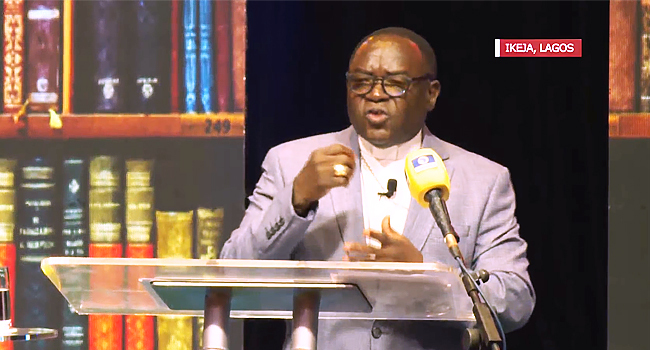News
Bishop of Sokoto Diocese, Matthew Kukah, has explained why democracy seems to be in recession in Nigeria

The Catholic Bishop of Sokoto Diocese, Matthew Kukah, has explained why democracy seems to be in recession in Nigeria despite being seen as the best form of government around the world.
The clergy spoke at The Platform Nigeria, a program by Lagos-based church, Covenant Nation, to mark the 2024 Democracy Day on Wednesday.
He said that unlike Europe where principles of democracy were founded on the thinking of several philosophers, Nigeria’s democracy was not founded on the country’s historical, cultural or anthropological experiences.
“What is missing in our conversation is that unlike where the principles of democracy were founded on the thinking of several philosophers from Plato, Socrates, Aristotle etc, our democracy has paid very little attention,” Kukah said.
“We have been involved intellectual conversations about democracy but modern liberal democracy as we understand it today benefitted extensively from the work of people like St Augustine and St Thomas Aquinas.
“It is also quite significant that Joe Biden even in his presidential address had to quote St Augustine and it means therefore that it is the teachings and philosophies and theology of some of these scholars that led the foundation to what we call democracy today.
“Unfortunately, our democracy is in decline, is in recession precisely because it is evident to us that what we are working with is not something that that come from our own historical, cultural or even anthropological experiences.”
Kukah said because of Nigerians’ obsession with politics, they can’t seem to think beyond a particular period.
According to him, Nigerians do not want to hear about what will happen in 2040 but all their attention are fixed on the politics of 2027.
While acknowledging global economic recession, Kukah said it’s impact is aggravated in Nigeria because mismanagement.
He said the situation could have been averted if there Nigerian legislators were alert to their responsibilities. According to him, the legislators were instead preoccupied with their salary scales, fringe benefits and unnecessary foreign travels.
The clergy posited that as a result of our inability to cultivate financial discipline and prudent management of the economy, the country has come to depend largely on internal and external borrowing to execute projects.






